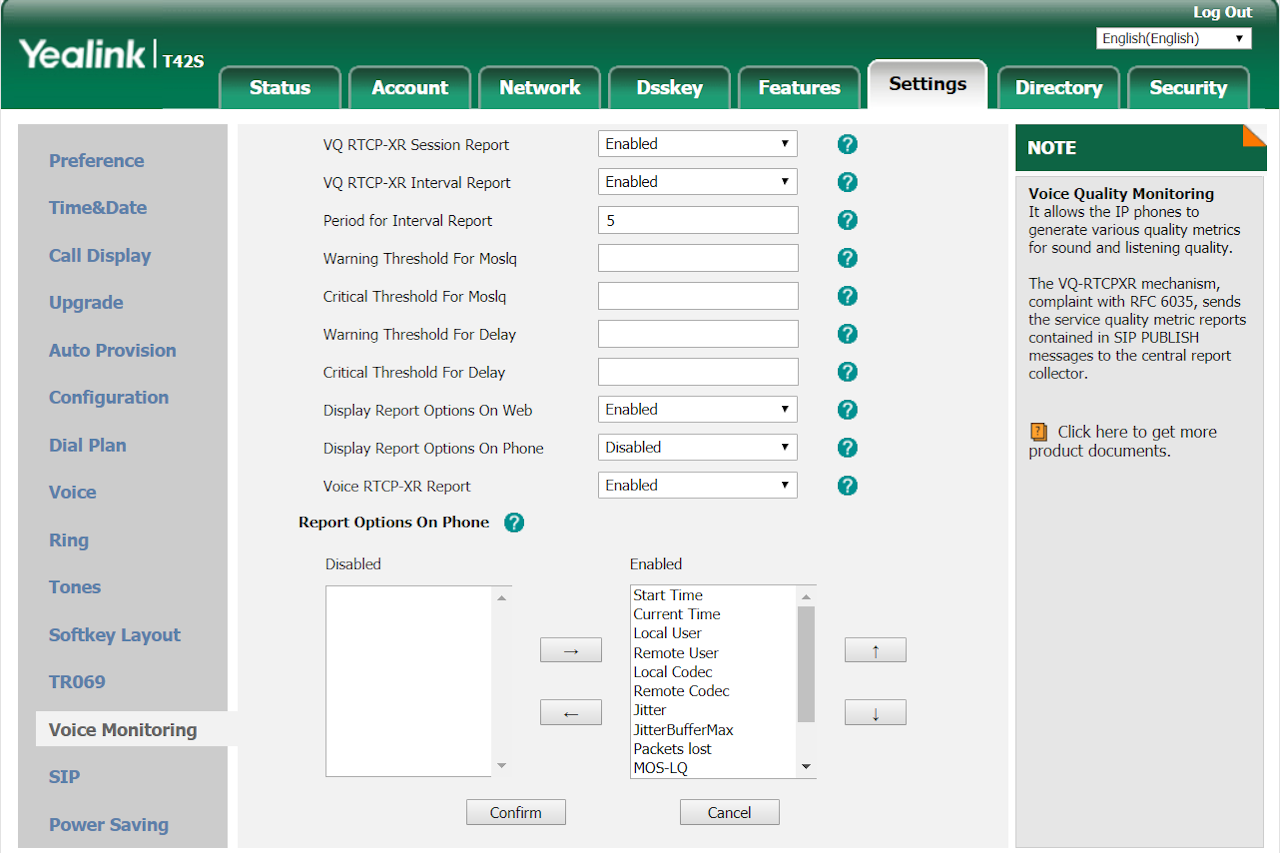

How to monitor the audio quality on a Yealink device
The audio quality can easily be monitored on a Yealink device. If your customer experiences audio issues, you can activate the monitoring on the Yealink device. Please follow the steps below:
Log in to your Yealink device.
Go to "Settings" in the top menu.
Go to "Voice monitoring" and set the following options:
Now press "Confirm" and make a test call for at least two minutes. After the test call, you can see the results:
Go to "Settings" in the top menu.
Go to "RTP Status" in the left menu.
Here you can find the following information:
Start Time: The exact start time of the call.
End Time: The exact end time of the call.
Local user: SIP account used for the call.
Remote user: Internal number user.
Local IP: Local IP address of the SIP phone.
Remote IP: The IP address from Kwebbl used for the call.
Local port: Local port used for the call.
Remote port: Remote port used for the call.
Local CODEC: Local CODEC used for the call.
Remote CODEC: CODEC used from Kwebbl.
Jitter: Indicating variations in packet arrival time.
JitterBufferMax: Indicating variations in packet arrival time.
Packetloss: The amount of packets lost during the call.
NetworkPacketLossRate: The amount of packets lost during the call.
MOS-LQ: Quality score Listener.
MOS-CQ: Quality score Conversation.
Extra information:
Packet Loss: If packets are lost during a call, the user will hear an audio drop or 'glitch'. In most scenarios, the packets are lost in the local network or internet connection from the customer.
MOS (Mean Opinion Score): A measure used to give a call a score. The MOS is expressed as a single rational number, typically in the range 1–5, where 1 is the lowest perceived quality, and 5 is the highest perceived quality. VoIP calls often are in the 3.5 to 4.2 MOS range. The following chart can be used as a guide for VoIP MOS testing and a good comparison for voice quality:
4.3 - 5.0: Very satisfied
4.0 - 4.3: Satisfied
3.6 - 4.0: Some users are satisfied
3.1 - 3.6: Many users dissatisfied
2.6 - 3.1: Nearly all users are dissatisfied
1.0 - 2.6: All users are dissatisfied
